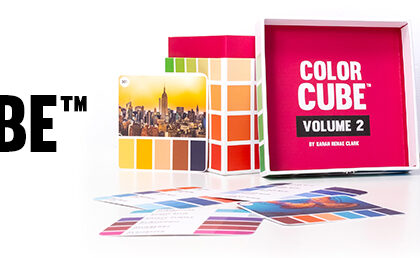There are a lot of videos, product reviews and concerned comments online about people who think they’ve received a set of counterfeit Prismacolor pencils.
But while there seems to be a lot of concern over fake Prismacolor pencils being sold, and a lot of concerned buyers worrying they might end up with a fake set, the actual evidence that these fake sets exist is hard to find.
I’ve made it my mission to discover the truth about whether counterfeit Prismacolor pencils exist, and how to protect yourself when buying pencils.
I’m also exploring the new “Japanese Prismacolors” and how these fit into the Prismacolor story.
Watch the full video investigation below!
All information presented in this article and video are opinions only. This video and article are not sponsored and endorsed by any brand or 3rd party. This post contains affiliate links and I may earn a commission if you click them (at no cost to you).
Quick Navigation
PART 1: Why is Everyone Talking About Fake Prismacolor Pencils?
Over the past few years, there has been an increasing concern of fake and counterfeit products being sold on websites like Ali Express, Ebay and even Amazon.
And there’s one brand that I’ve seen mentioned over and over in the coloring and art groups I’m in, with claims and reviews from people who think they’ve been scammed into buying fakes or who are scared of being tricked.
Prismacolor.
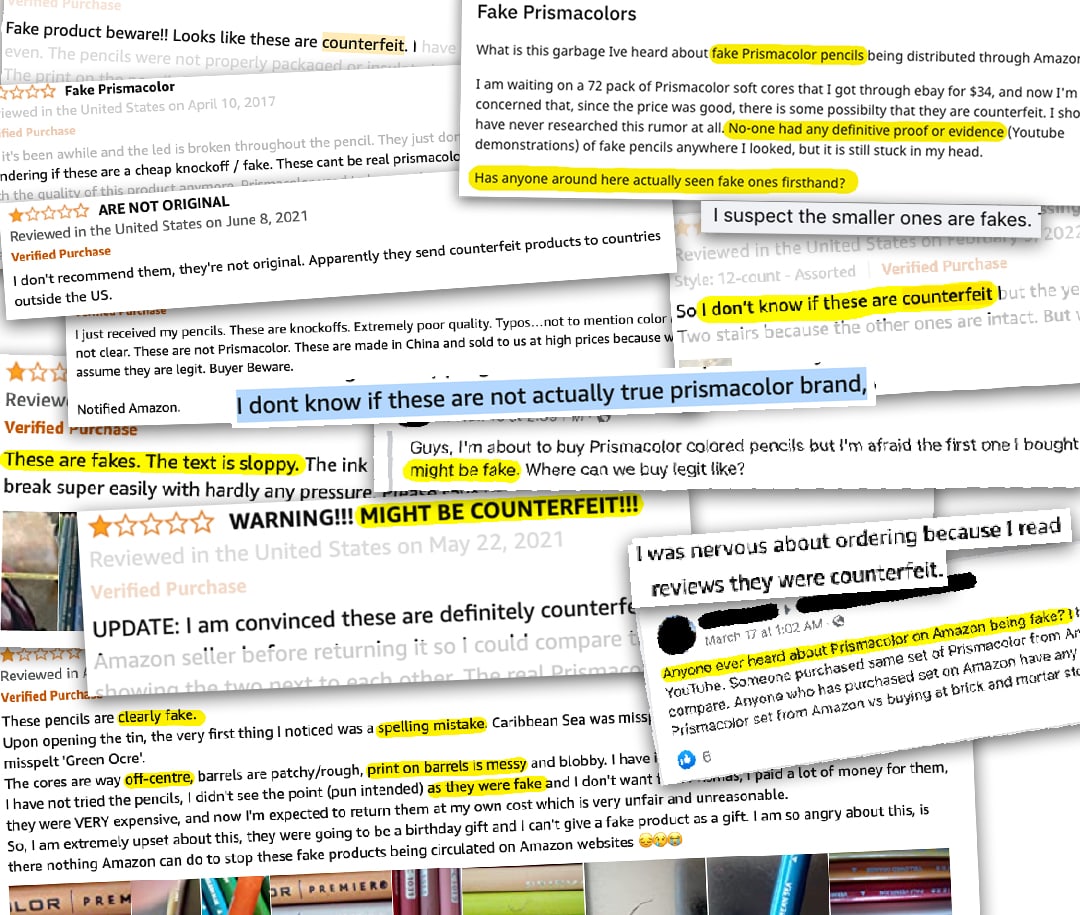
So why is it that everyone is so concerned about fake Prismacolor’s, and not fake Holbein’s? Or fake Derwent’s? Or Fake Faber-Castells? Why is Prismacolor the only pencil that is apparently the target of all these scams?!?
So, I’ve spent the last few months finding answers to these questions. And wow. I’ve uncovered more than I expected. I started in the same place that many of concerned YouTubers start. I’ve bought a new set of Prismacolor pencils from a 3rd party seller on Amazon at a heavily discounted price. Like many of the sellers on Amazon, there were plenty of concerned reviews that these Prismacolor pencils were fakes.
Spoiler alert: They weren’t fakes.
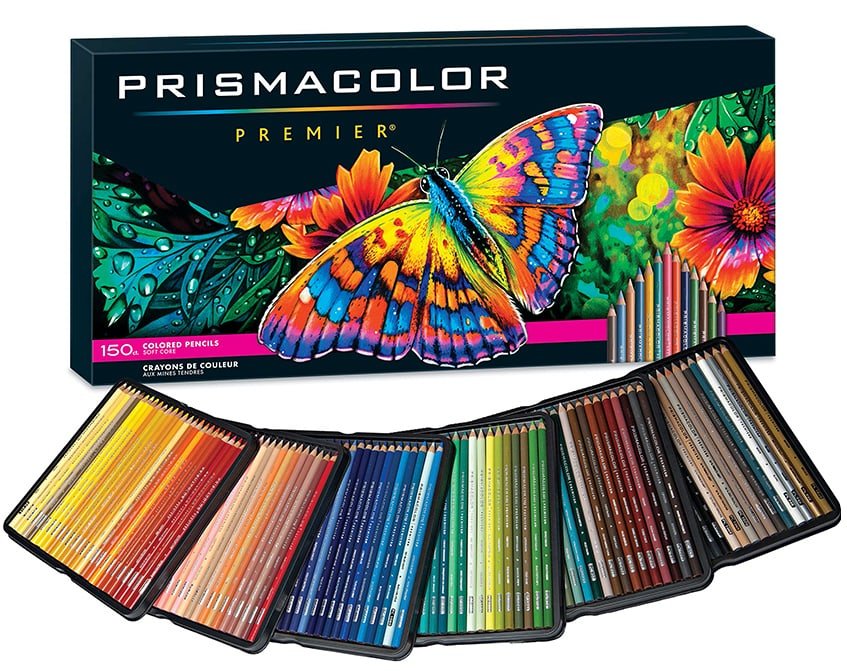
What to expect in a REAL set of Prismacolor Pencils
It’s NOT uncommon for Prismacolor pencils to come with broken or of-centre cores, splits in the wood or poor printing… and I think this is why SO many people find themselves in a panic when they buy these pencils, thinking they have ended up with a set of fakes.
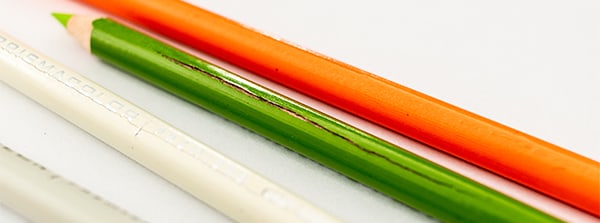
Especially when so many artists rave about these pencils being some of the best.
Because despite all these flaws and the disappointing quality control, these are still amazing pencils and some of my favorites.
Prismacolor Premier have always been some of my favorite pencils for art and adult coloring pages. They have a buttery, soft core that makes them easy to blend and they feel great to use.
The colors are vibrant, and work on any type of paper without losing opacity – they are even bright on the black paper, and the white pencil is one of the best available.
These pencils aren’t the BEST pencils out there, but any pencils that I personally would rate higher come with a much higher price tag.
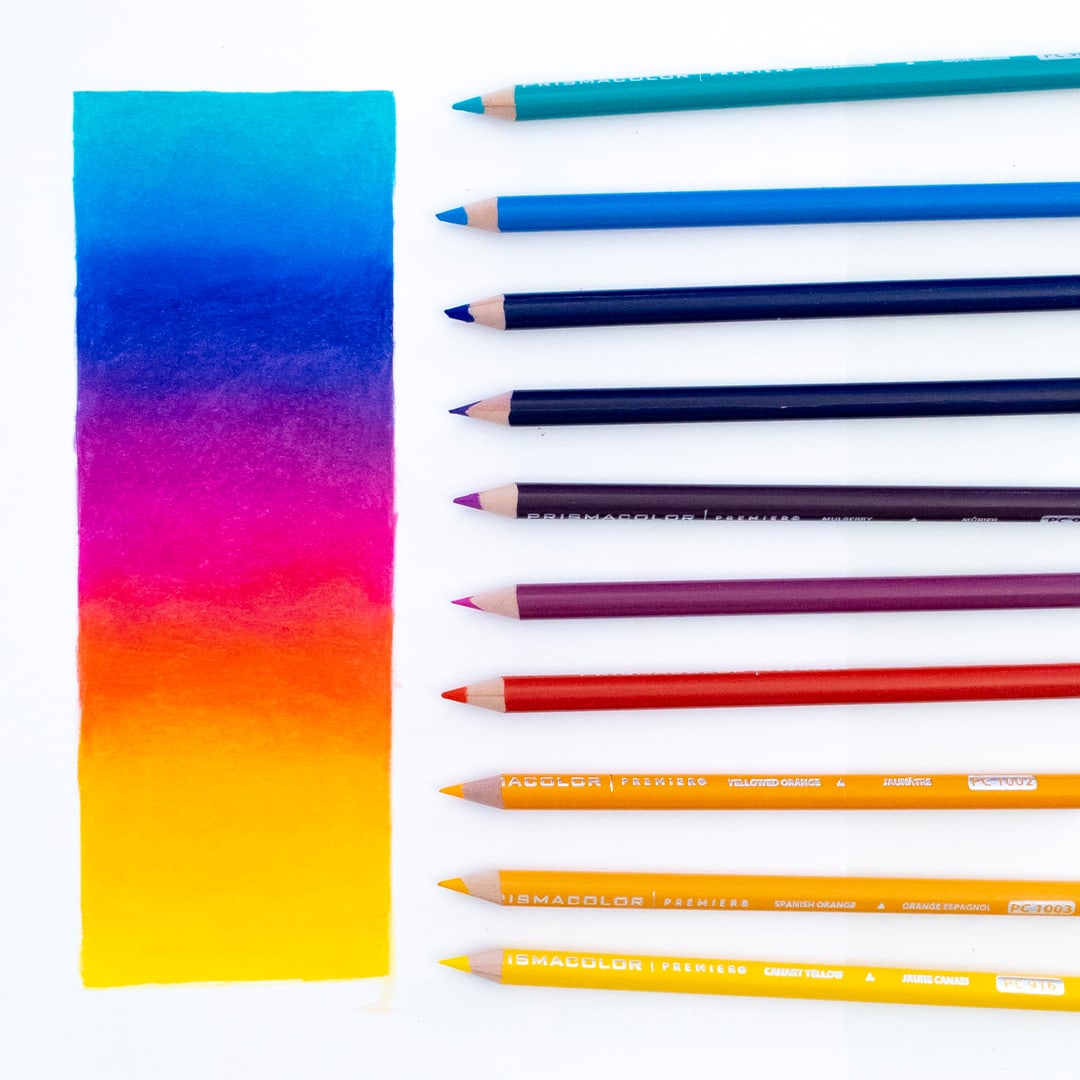
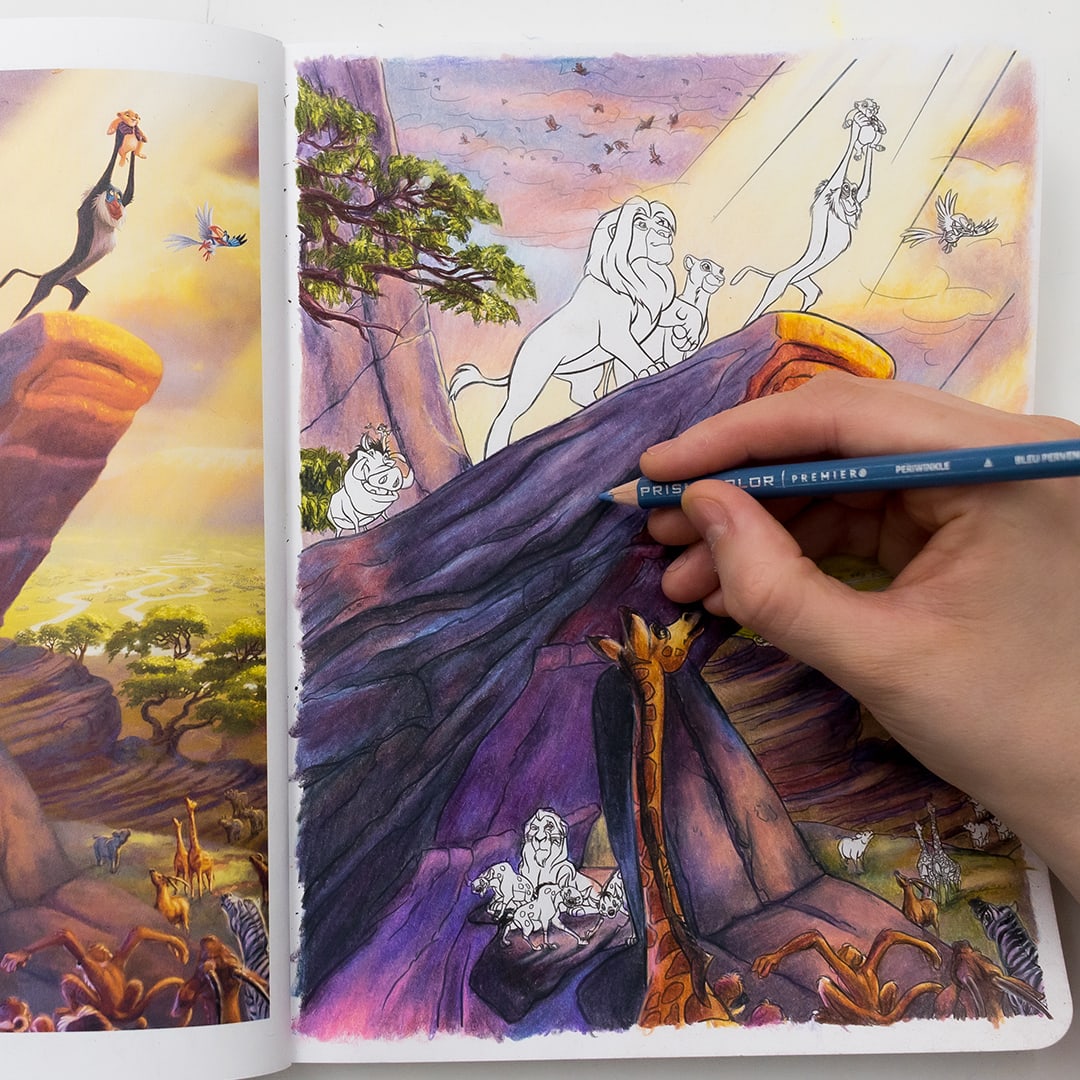
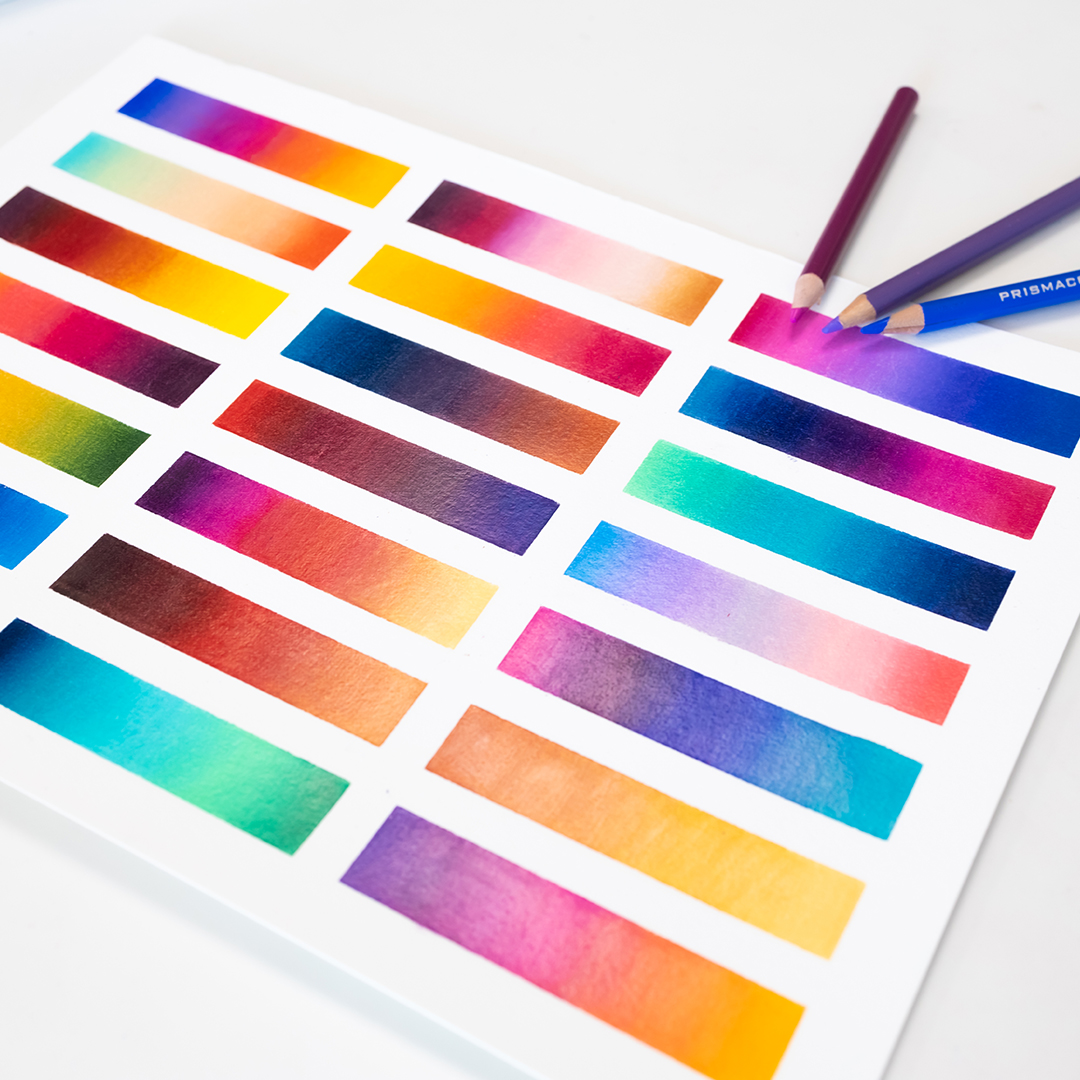
Other Prismacolor Tutorials You’ll Enjoy:
Why are so Many People Worried About Buying Fake Prismacolor Pencils?
After finding little to no evidence of counterfeit pencils in my search so far, I reach out to some other YouTube creators and artists the coloring and pencil community to get their thoughts on this subject.
Thank you so much to Lindsay, Claire, Pamela and Jennifer for contributing to this conversation! You can follow each of them below:
Question 1: Why do you think so many people are concerned about buying fake Prismacolor pencils?
“There’s been a lot of controversy online, and it’s a great video – “I’ve got fake Prismacolors”. And I think people see that, and then they get worried and they second-guess their judgement.” – Lindsay Weirich
“I think it just started as a grape-vine effect, where it started out as one person thinking they got fake Prismacolors, leaving all these reviews on Amazon. And so other people see it… and everybody starts to get worried that theirs may be fake as well, … and it goes from one person to the next… and it just sort of started this domino effect.” – Pamela Arias
Question 2: Have you ever come across a fake set of Prismacolor pencils?
“I’ve never seen or heard of anybody getting an actual fake set. I’ve seen lots of posts on social media, where people are worried that theirs might be fake, but I’ve never actually seen an actual fake set.” – Pamela Arias
“I’ve never had anybody message me or email me with a Prismacolor saying “this is fake” or “is this fake?” … I get messages saying “how do I know that I’m not buying a fake?” “I’ve heard that there are so many fakes around, where do I go to buy them to get the genuine ones?” So I don’t know whether it’s just this hype that’s happening… that people are just concerned that there are fakes out there but there’s no actual proof of it?” – Claire Eadie
“I have never come across a set of fake Prismacolor pencils, I have come across ones that are split, chipped and broken, where there were quality control issues… especially in the late 90s when they first moved their factories.” – Lindsay Weirich
Question 3: Why do you think Prismacolor is the target for this controversy, more so than other brands of colored pencils?
“Prismacolor have gone through a huge transition, and now that they’re manufacturing in Mexico, it seems to me that people don’t trust the brand anymore. There are quality issues, and you so you put all that together, and it makes Prismacolor a perfect target for conspiracy, which is what I think is going on here.” – Jennifer Stay
“And also because the pencils have been hyped up and so popular over the years, and the quality has gone down over the last 20 years or so, people are expecting a lot when they pick up a Prismacolor. And when it doesn’t deliver, they’re really disappointed and probably a little bit more disappointed than if they just picked up a generic pencil and started using it.” – Lindsay Weirich
So the big question I found myself asking when researching for this video – are there actually counterfeit Prismacolors out there? I watched every video I could find and read every article and review, and I found very few examples that I would consider to be a legitimate concern for buyers who are trying to avoid buying fake products on Amazon.
I even reached out to Prismacolor a few times and eventually managed to get in touch with their branding team, who said that they don’t really see a significant issue with counterfeit products, but that concerned buyers can reach out to their care team if there’s ever a question about the authenticity of a set of pencils.
So is there ANY evidence that counterfeit Prismacolors actually exist?
The Counterfeit Prismacolor’s – We Found Some
From the many videos I watched about “fake” Prismacolor pencils on YouTube, there was ONE that stood out to me as the only example I’d seen that looked like the pencils featured were actually counterfeit. The video was by Greg (aka Vexed Sinik) and he talked about his experience buying from a 3rd party seller on Amazon, and swatching his “fake” Prismacolor pencils against a new set of “real” pencils, showing they were, in fact, quite different in performance.
So I decided to reach out to Greg and he very kindly offered to send me this set of counterfeit pencils so we could take a closer look in this video.
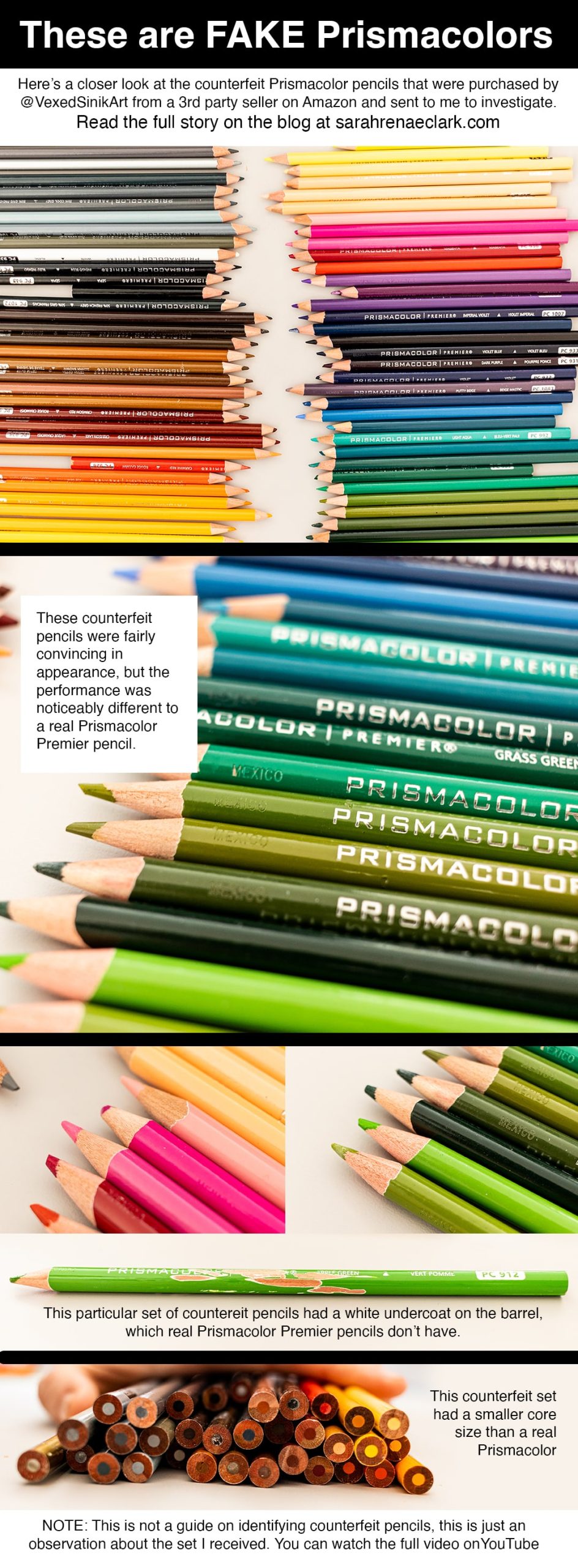
At a first glance, these pencils looked exactly like Prismacolor pencils. They came in what seems like a genuine Prismacolor tin and looked like the same type of pencil. The printing on each pencil was the same font and color printing, and if you didn’t have the original Prismacolors to compare these with, you wouldn’t necessarily know these were fake at first.
This particular set had a white base coat under the pencil barrel colors, which is not something Prismacolor has, so this was an instant flag. When compared against the real set of Prismacolor pencils, you could see very slight variations in the printing and thickness of the words, and a difference in the core sizes (the fake cores were smaller on this particular set)
The performance of the pencils is where the counterfeit became obvious. Prismacolors are known for their buttery, smooth core. And these fakes felt more like a firm Crayola pencil, but without the consistency between each color.
When side by side with the original Prismacolor pencils, the colors were close, but not a match. Some pigments were completely different, and some barrels were different to the original pencils too.
Split barrels, soft cores and bad printing are common in real Prismacolor pencils. These faults are not necessarily a sign that your pencils are fake. But different colors or scratchy pencils (with the exception of Electric Blue or the metallics) are something that you are unlikely to find in a real set of Prismacolor pencils.
Note that these are observations from this set only and NOT a guide to identifying fakes. If you have a concern about your product, you should always reach out to the seller or manufacturer with your concerns.
What To Do If You Think You Have Counterfeit Pencils
In my personal opinion, I think counterfeit pencils like this are NOT as common as many of us have been led to believe as consumers.
If you’re buying your pencils from a craft shop or a reputable website, then you shouldn’t have any troubles. And if you are buying from Amazon, you CAN reach out to Amazon for a replacement set if you somehow end up getting scammed by a dishonest 3rd party seller. Although in the colored pencil world, I still don’t think even this is as common as we all worry that it is.
Extra note: I probably wouldn’t recommend buying Prismacolor pencils from Ali Express, as these will be harder to return if you do come across any issues with 3rd party sellers.
When I spoke to Prismacolor about this, their main advice was to contact their care team if there were any concerns about counterfeit products. They can also offer a list of authorized resellers in your area to purchase from.
PART 2: The “Japanese Prismacolors”
To fully uncover the next part of this story, I need to give you a super quick history lesson on the Prismacolor brand.
The History of Prismacolor
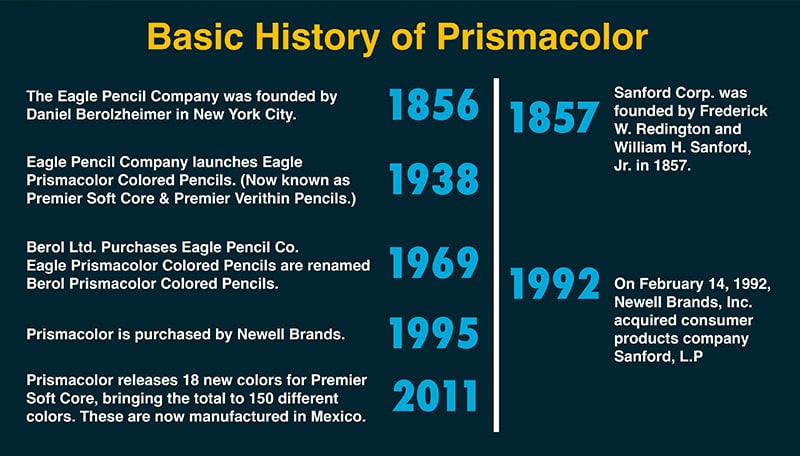
The Prismacolor pencils were first launched in 1938 by the Eagle Pencil Company. In 1969, Eagle Pencil Company was bought by Berol, and the Eagle Prismacolor Pencils became Berol Prismacolor pencils. Sanford Corp was established in 1857 as one of the world’s leading manufacturers and suppliers of pencils and was acquired by Newell Rubbermaid in 1992. In 1995, Prismacolor was purchased by the Newell Company and is placed under the Sanford division. From what I have been able to find online, Berol were not able to sell Prismacolor pencils in the UK because someone else already had rights to the name, so they produced the Karisma Colour pencils.
The Karisma Colour Pencils looked completely different to the Prismacolor pencils, but the colors and numbers were the same. The Karisma Colour Pencils were discontinued in 2005. And the manufacturing of the Prismacolor Pencils was moved to Mexico in 2010.
Vintage Prismacolor Pencils
Many artists agree that the quality of Prismacolor pencils has dropped since the manufacturing moved to Mexico. So the discontinued sets of Karisma Colour and vintage Prismacolor pencils by Berol, Eagle and Sanford are becoming more and more valuable online, as people try to get their hands on these sets – both for collector value, but also to enjoy as actual pencils instead of the modern Prismacolors.
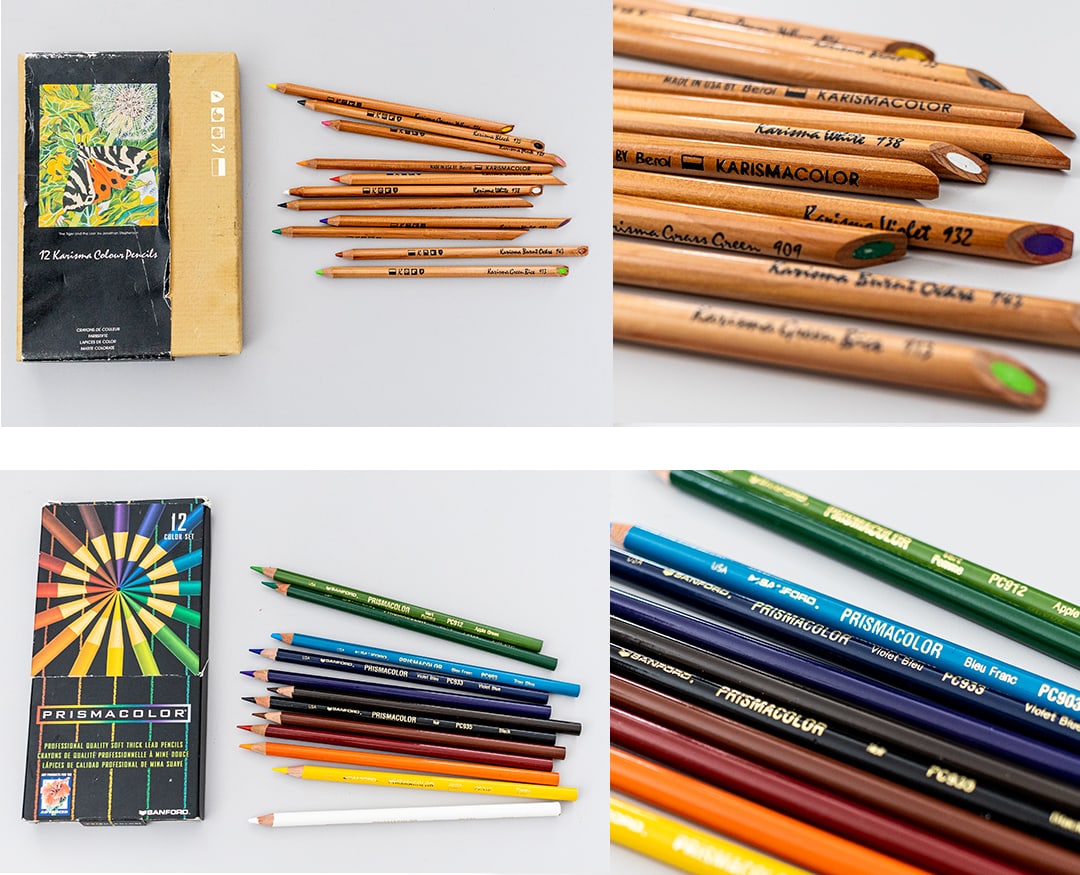
The New Karismacolor Pencils from Japan
I started planning this entire investigation when I came across a Facebook group conversation 6 months ago.
Someone posted their find of some Karisma Colour pencils, and everyone was excited, because, as we’ve just discussed, vintage Prismacolor or Karisma Colour pencils are rare, expensive, and hard to find.
But these WEREN’T the vintage Karisma Colour pencils. They are advertised as KARISMACOLOR Pencils and are owned by the company SANFORD. But they are not made by the same factory as Prismacolor. They are made in Japan.
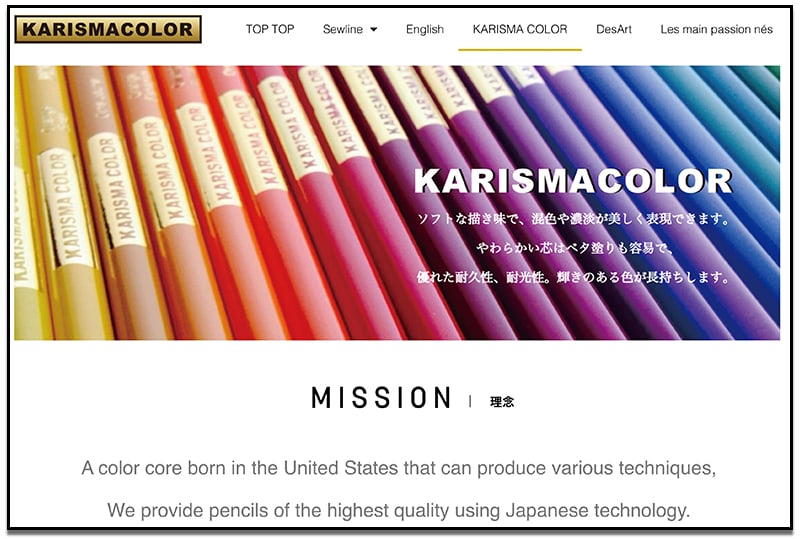
Unfortunately there’s not a whole lot of information about these pencils available online, and the only place I seem to be able to find them is on eBay – which is where most people would be looking to find the Sanford or Karismacolor VINTAGE pencils.
(On further search, they are also available on Amazon Japan’s website, or a single listing on Amazon.com as “Charisma Color” pencils)
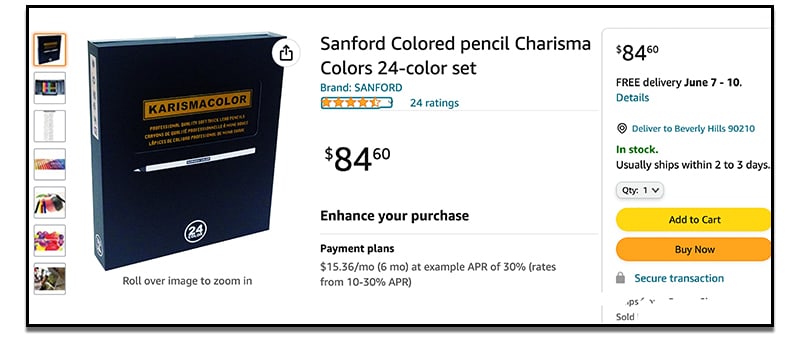
Now, here’s the next interesting point. If these pencils were compared to any other set of mid-range pencils, I’d expect them to be priced anywhere between $0.40 to even as high as $2 per pencil. A set of Prismacolors ends up being around 50c to $1.20 USD per pencil. These Karismacolor pencils are being sold on ebay for $2 – $3.87 USD per pencil. For comparison, that’s similar and in some cases slightly more expensive than a set of Caran d’Ache Luminance.
So why are they double the price of Prismacolor? Is it maybe so they are more easily comparable to the price of the vintage pencil ranges?
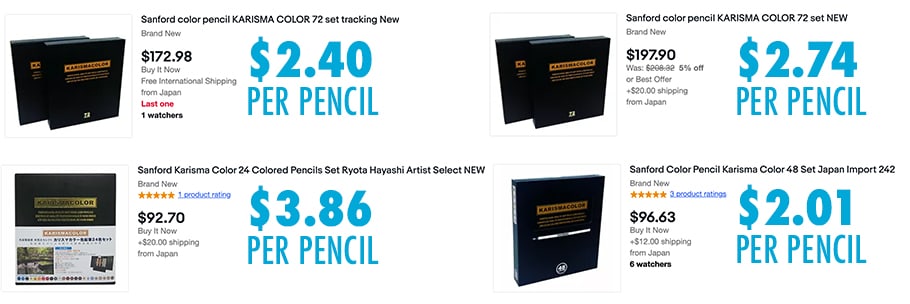
For comparison, that’s similar and in some cases slightly more expensive than a set of Caran d’Ache Luminance.
So why are they double the price of Prismacolor? Is it maybe so they are more easily comparable to the price of the vintage pencil ranges?
Confused Buyers AND Sellers
In my search for answers, I found that these pencils were definitely causing confusion. Comments from customers and in Facebook groups referred to these as the “Japanese Prismacolors” or just thought they were the vintage set.
To make matters worse, many of the ebay listings were using the name Prismacolor in their descriptions or their titles to sell the Japanese karismacolor pencils. Or in some cases, were even using the Prismacolor images.
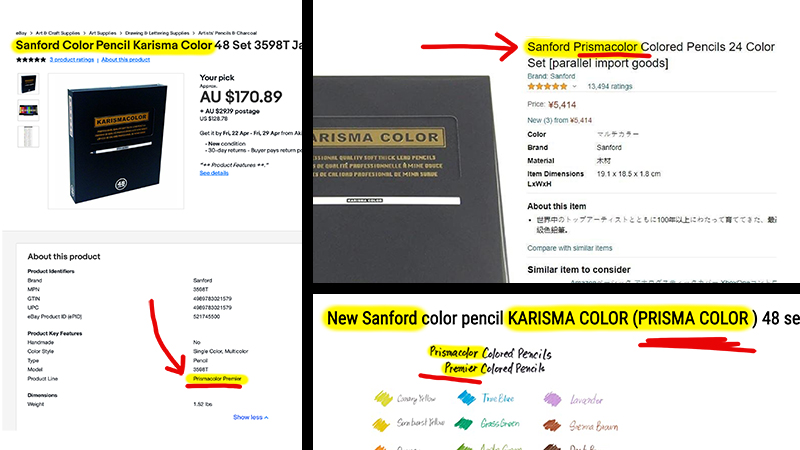
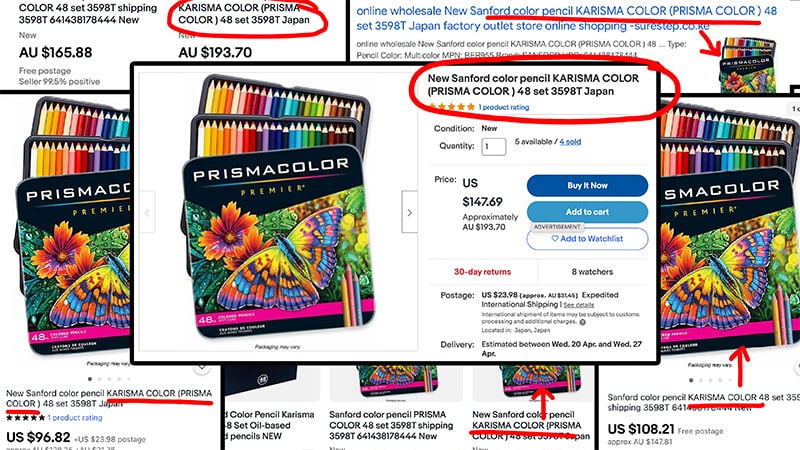
I tried contacting the company that makes these pencils, but that was a dead end. I also reached out to Prismacolor’s support via their website a few months ago, asking if they’d heard about these Japanese pencils, but never heard back. So instead, I reached out to each of the ebay sellers who were selling these to ask them a simple question.
Are these the same as Prismacolor Pencils?
These were the responses I received (from different 3rd party sellers):
- Yes, it’s the same item. KARISMA Color is the new name for prism color.
- Thanks for your inquiries I do not believe that they are the same. Have a nice day.
- Since the name of this item was changed from Berol to Sanford, the product name was changed from “Prism Color” to “Charisma Color”, but the quality of the colored pencils seems to be the same.
- According to internet information, They are almost same. Karisuma-color is product name in Japan, Prisma color is a product name in overseas. Prisma colors are also produced in other countries, some of which are not good quality. However, Japanese prism colors, that is, Karisuma colors, are of good quality.
- The KARISMA color was previously sold under the Prismacolor brand, but is now renamed to the KARISMA color in Japan. It seems that the cores of those pencils are the same, but the wooden parts of the pencils are different. It seems that the production of that part is done in Japan. So they seem to be a little different in usability.
- Yes, it is prisma. sorry for the wrong title. I have just fixed it.
- It is different. These colors are selected by the artist names Ryota Hayashi.
And so I bought my own set to find out for sure.
Prismacolor Premier Vs Sanford Karismacolor (from Japan)
The branding on the new Sanford Karismacolor pencils from Japan looks very similar to the vintage Sanford Prismacolor pencil design. It has clearly been inspired by these pencils. (There is another version of the vintage Prismacolors which I don’t have that have the same gold box around the word “Prismacolor” like these)
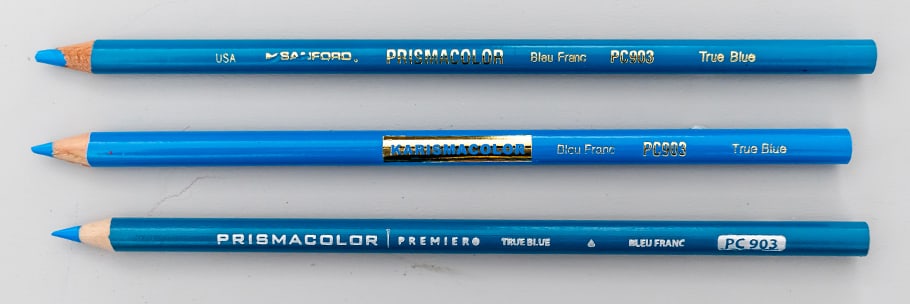
The numbers and color names are identical, and the cores look the same… except the Japanese Sanford Karismacolor pencils seem to be built stronger and at a higher quality, causing less breakage.
When I purchased these, I thought I was buying a Prismacolor dupe or replica. But instead, these have turned out to be exactly the same as a Prismacolor pencil… and maybe slightly better.
The colors are a perfect match, and the smooth, buttery performance is an exact replica of a Prismacolor Premier pencil.
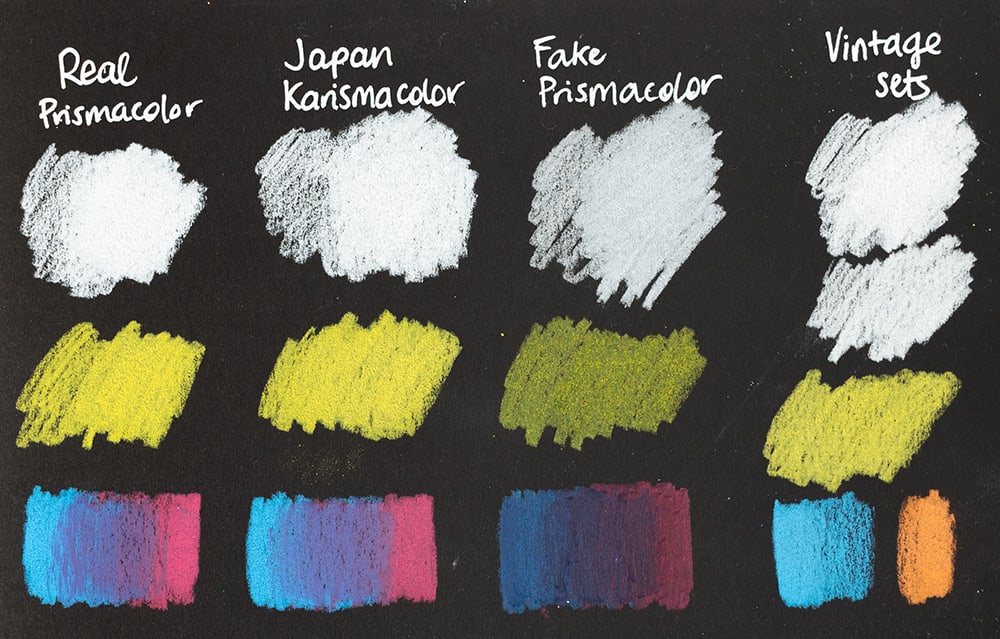
But from the small testing I’ve done, it seems that the new Japanese Sanford Karismacolor colored pencils are a closer match to the vintage Sanford Prismacolor pencils with the better quality control and stronger barrels, rather than the current range of Prismacolor Premier pencils that are notorious for breakage.
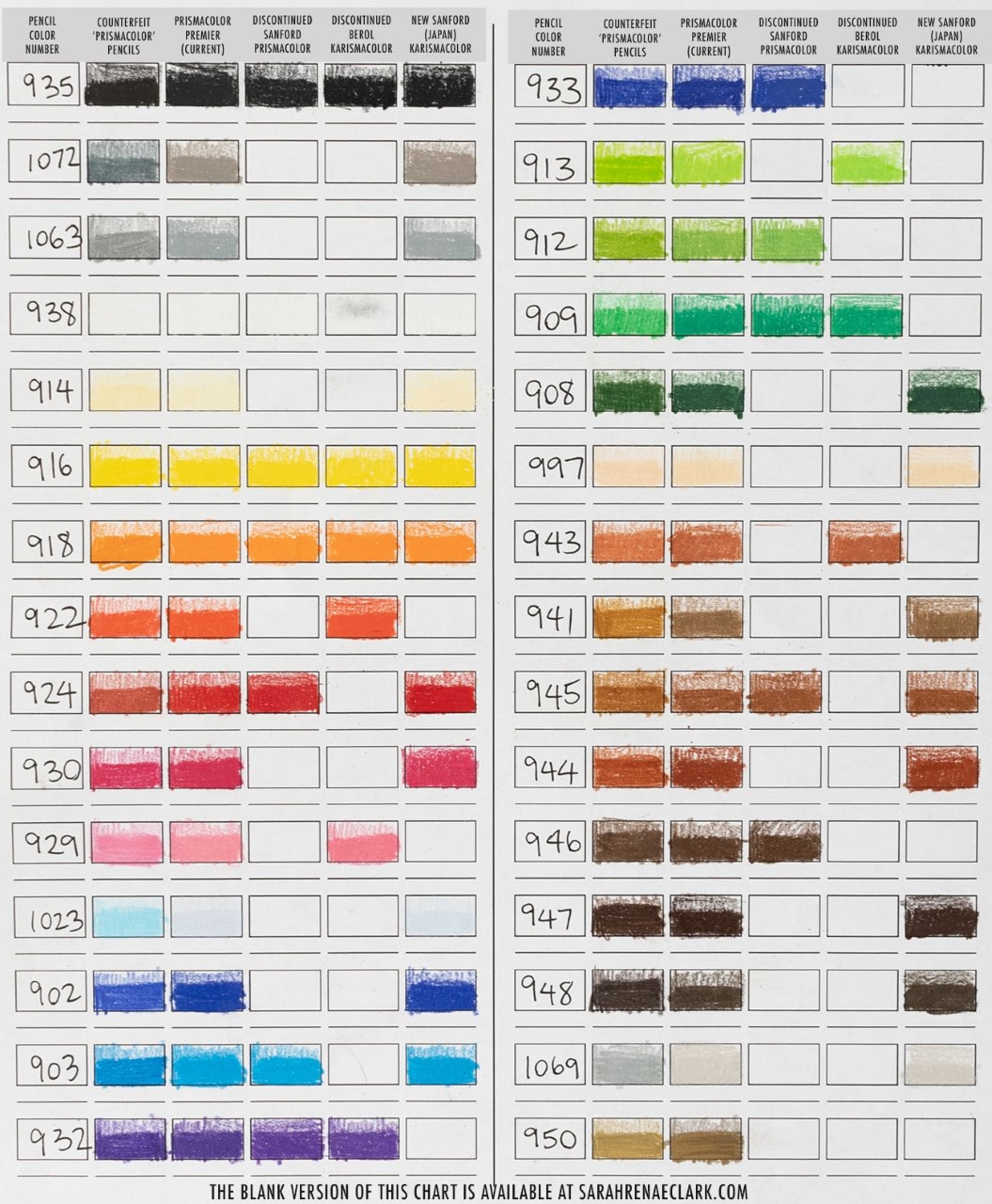
So Many More Questions…
So my biggest question right now – How is this new brand even allowed to sell these pencils under the Sanford and Karismacolor name? Are these ACTUALLY Japanese Prismacolors? Were all these ebay sellers correct in saying they were the SAME pencils and that the name was changing back to Karismacolor?
When I finally got in touch with Prismacolor’s branding team in the past few weeks, I had a lot of questions – and that’s before this discovery we’ve just made. And while they didn’t have a lot of answers for me, they did have one big piece of the puzzle that was very interesting to discover:
Prismacolor still owns the Karismacolor brand, but have licensed the name to a 3rd party for use in Japan.
For a little more context, Prismacolor is not sold in Japan, so the license allows the 3rd party to make Karismacolor brand colored pencils for sale in Japan only. (Although I was able to buy them in Australia, and they are available under the title “Charisma Color” on Amazon USA’s website.)
I have SO many more questions at this point.
If Prismacolor are licensing their name to a 3rd party but are otherwise not involved in the manufacturing of these pencils, why are they SO similar to Prismacolor? And if they aren’t the same, why are Prismacolor allowing another company to use their name and copy their product? Won’t this eventually damage the Prismacolor brand?
My current theory, based on the research I’ve done and the answers from Prismacolor and the 3rd party eBay sellers, is that the Karismacolor pencils are made with the same cores as the Prismacolor pencils, but the new barrels are manufactured in Japan – at a higher quality than the Mexico barrels, making them a stronger pencil, more like the original (now vintage) Sanford Prismacolors or Karismacolor pencils.
I guess we’ll just have to see where this story takes us.
My Final Thoughts
When it comes to buying pencils in general, I do think the hype and fear about counterfeit pencils is exaggerated.
Even though I’ve managed to find a set, this is the only set I was able to find out of the many videos I watched and people I contacted online.
If you buy from reputable websites and avoid 3rd party sellers, you don’t have to panic about accidentally ending up with a counterfeit set of pencils. And worst case scenario, if you do think you’ve been duped, you can reach out to Prismacolor’s customer care team for support.
I know this leaves me with even more questions at this point. But I still love my Prismacolor pencils. I do wish they would pay more attention to their quality control, and now I’m wondering if this Japanese version (or dupe or whatever it is) – might be an answer to that – although the price point is a real dealbreaker for me. For now, I still consider Prismacolor to be one of my favorites, but I’ll definitely be watching this space and would love to hear your own thoughts on all this in the video comments on YouTube.
If you found this interesting or helpful, please share it!
Other articles you might enjoy:

The post The Truth About FAKE Prismacolor Pencils appeared first on Sarah Renae Clark – Coloring Book Artist and Designer.




